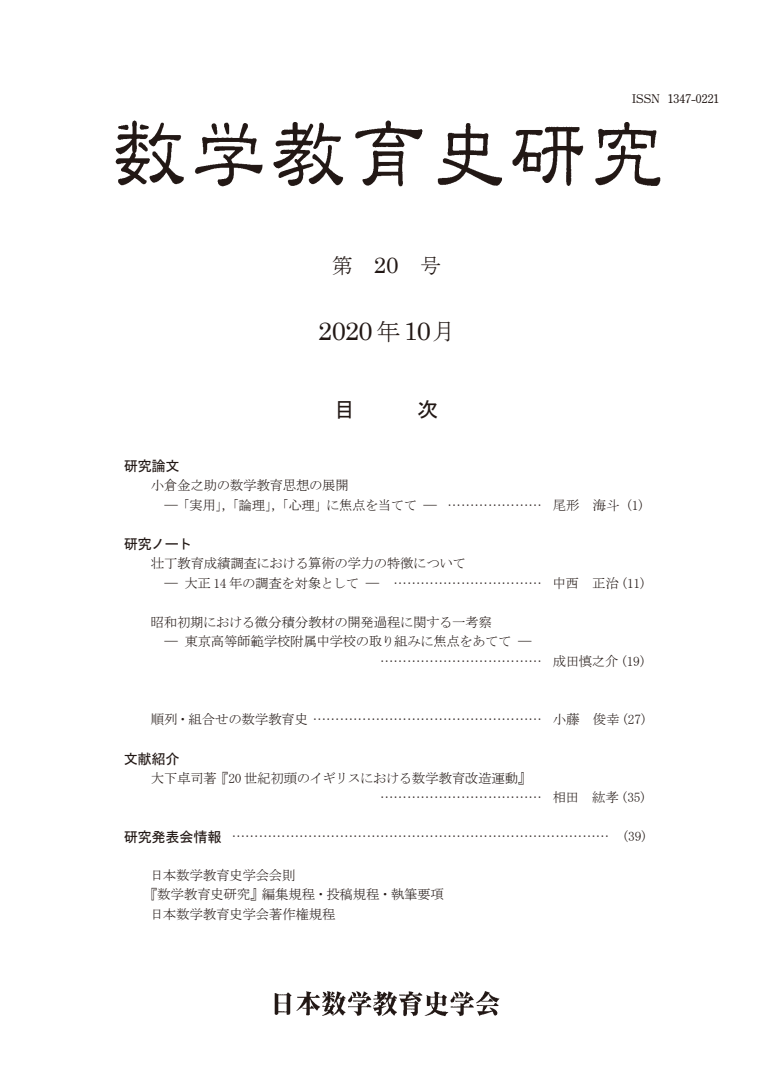20 巻
選択された号の論文の12件中1~12を表示しています
- |<
- <
- 1
- >
- >|
-
2020 年 20 巻 p. 0
発行日: 2020年
公開日: 2023/11/13
PDF形式でダウンロード (111K)
研究論文
-
2020 年 20 巻 p. 1-10
発行日: 2020年
公開日: 2022/03/23
PDF形式でダウンロード (731K)
研究ノート
-
2020 年 20 巻 p. 11-17
発行日: 2020年
公開日: 2022/03/23
PDF形式でダウンロード (758K) -
2020 年 20 巻 p. 19-26
発行日: 2020年
公開日: 2022/03/23
PDF形式でダウンロード (748K) -
2020 年 20 巻 p. 27-34
発行日: 2020年
公開日: 2022/03/23
PDF形式でダウンロード (718K)
-
2020 年 20 巻 p. 35-38
発行日: 2020年
公開日: 2022/03/23
PDF形式でダウンロード (537K) -
2020 年 20 巻 p. 39
発行日: 2020年
公開日: 2023/11/13
PDF形式でダウンロード (480K) -
2020 年 20 巻 p. 40
発行日: 2020年
公開日: 2023/11/13
PDF形式でダウンロード (464K) -
2020 年 20 巻 p. 41-42
発行日: 2020年
公開日: 2023/11/13
PDF形式でダウンロード (610K) -
2020 年 20 巻 p. 43-44
発行日: 2020年
公開日: 2023/11/13
PDF形式でダウンロード (534K) -
2020 年 20 巻 p. 45
発行日: 2020年
公開日: 2023/11/13
PDF形式でダウンロード (443K) -
2020 年 20 巻 p. 46
発行日: 2020年
公開日: 2023/11/13
PDF形式でダウンロード (45K)
- |<
- <
- 1
- >
- >|
